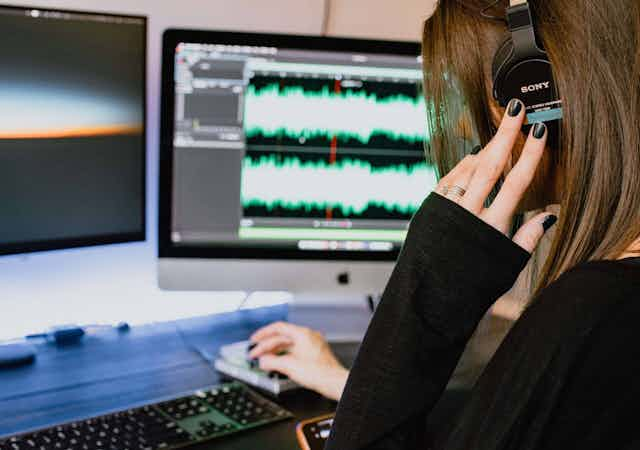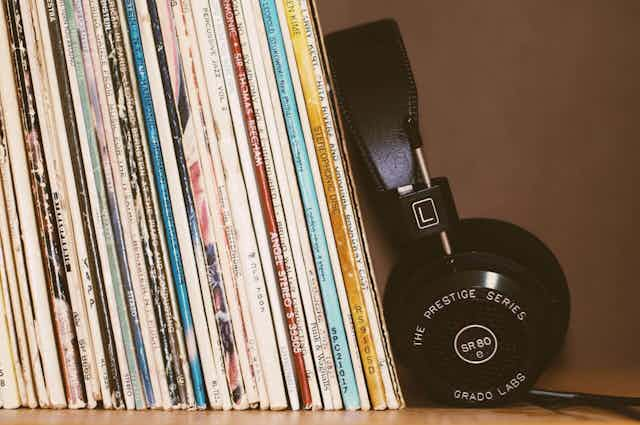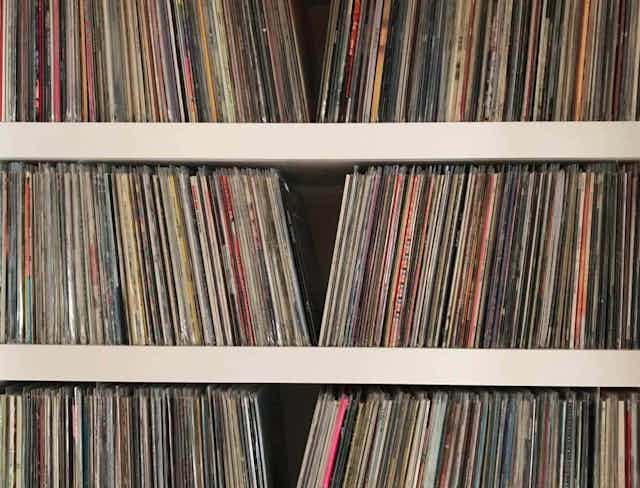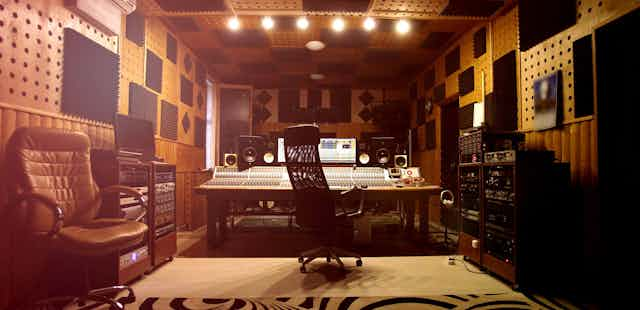Does AI music have copyright protection?


Holding a degree in Business Administration and Programming, Pablo established Legis Music in 2016. With a focus on the royalty-free music industry, he has contributed extensively to the field, authoring over 150 articles on various aspects of music licensing. His efforts have been instrumental in developing one of the most straightforward and liberal music licensing frameworks available today.
Key Takeaways
- AI systems can analyze musical data, learn patterns, and adapt over time to create complex compositions and even entirely new musical genres.
- The music industry is increasingly incorporating AI for tasks like audio mastering, transcription, and melody identification.
- Concerns include potential job losses for human musicians and composers due to AI’s widespread use.
- Current copyright laws are based on human creativity and originality and may not adequately protect AI-generated music.
- Ambiguities exist regarding who owns the copyright for AI-generated music, and there is a need for new copyright categories and international consensus.
- Different countries have varying approaches to copyright protection for AI-generated works, leading to potential legal disputes.
- Proposed changes in copyright laws may involve creating new intellectual property rights categories for AI-generated music.
- The industry needs new licensing models and ethical considerations to ensure fair compensation for artists and transparent legal frameworks for AI-generated music.
Artificial intelligence (AI) is rapidly transforming the music industry, and its unique results are raising new and complex legal issues.
One of the biggest concerns is whether AI-generated music is entitled to copyright protection.
Given that traditional copyright laws are based on human creativity, the advent of machine-generated content poses significant challenges.
This article explores the intricacies of AI-generated music and copyright, examining the evolution of AI-generated music and exploring the limitations of current copyright laws for this new area of music creation.
Understanding AI-generated music
 In recent years, AI systems have become increasingly sophisticated, enabling them to compose original pieces of music with remarkable accuracy.
In recent years, AI systems have become increasingly sophisticated, enabling them to compose original pieces of music with remarkable accuracy.
Rather than relying on pre-existing melodies and rhythms, AI algorithms use machine learning models to analyse large amounts of musical data and learn how music is typically structured and how different elements combine to create effective compositions.
With these tools at their disposal, AI systems can create completely original works, from classical music to contemporary pop songs.
What is AI music?
AI music refers to music that is composed, performed or produced with the help of artificial intelligence systems.
AI-generated music is created using machine learning models that can analyse large collections of music and create original works without human intervention.
 Although AI can generate a wide range of musical styles, it remains a controversial topic due to its dependence on machines.
Although AI can generate a wide range of musical styles, it remains a controversial topic due to its dependence on machines.
AI-generated music has been used in a variety of applications, such as background music for videos, video games and even live performances.
Thus, the use of AI in the music industry has opened up new possibilities for musicians and producers, allowing them to create music that would have been impossible to produce without the help of AI systems.
How does AI compose music?
AI music creation systems are based on complex algorithms that use machine learning models to analyse and learn patterns in existing music.
They can compose music by following pre-existing rules and creating new patterns by predicting the next note or tone.
 These systems can also analyse music based on various factors, such as rhythm, melody and harmony, and generate original compositions based on these factors.
These systems can also analyse music based on various factors, such as rhythm, melody and harmony, and generate original compositions based on these factors.
One of the most remarkable features of AI-generated music is its ability to adapt and evolve over time.
As the AI system learns more about music and musical structures, it can create more complex and sophisticated compositions.
This has led to the creation of entirely new musical genres that were previously unheard of.
Evolution of AI in the music industry
The use of AI in the music industry has grown considerably in recent years, and we are beginning to see its widespread application.
Many leading music production and songwriting companies are incorporating AI into their workflow.
 AI is being used to speed up tasks such as audio mastering, transcription, sound and sample categorisation, melody and chord identification, among others.
AI is being used to speed up tasks such as audio mastering, transcription, sound and sample categorisation, melody and chord identification, among others.
This has resulted in a more efficient industry, and artists can now quickly experiment with different ideas.
In addition, AI-generated music has opened up new opportunities for aspiring musicians and composers. With the help of AI systems, they can create high-quality, original music without the need for expensive equipment or professional training.
Despite the many advantages of AI-generated music, there are also concerns about its impact on the music industry.
Some critics argue that the widespread use of AI systems could lead to job losses for human musicians and composers.
Overall, AI-generated music is an exciting development that has the potential to transform the music industry.
As AI systems continue to evolve and become more sophisticated, we can expect even more innovative and groundbreaking music to be produced with the help of these powerful tools.
Current copyright laws and AI music
Existing copyright law is based on the principles of originality and human creativity.
 They are designed to protect the intellectual property rights of creators and ensure that they receive recognition and compensation for their work.
They are designed to protect the intellectual property rights of creators and ensure that they receive recognition and compensation for their work.
However, with the advent of AI-generated music that uses machine learning models to create original works, the law has become more complex.
Traditional copyright protection for human-made music
Under current copyright law, music creators have exclusive rights to reproduce, distribute and perform their works.
They also have the right to create derivative works based on their original compositions.
This means that any use of their music without permission may infringe their rights, and they may be sued for infringement.
For example, a musician who composes a song has the exclusive right to reproduce and distribute it to the public.

If someone else were to use that song in a commercial or public setting without the musician’s permission, they would be infringing the musician’s copyright and could be sued for damages.
The limitations of current copyright laws for AI music
While current copyright laws protect music created by humans, they do not offer sufficient protection for AI-generated music.
As AI systems generate music without human intervention, there is a debate as to whether this type of music deserves copyright protection.
Furthermore, there are questions about who owns the copyright to AI-generated music: is it the AI designer or the owner of the machine?
 These ambiguities make it difficult to apply copyright law to AI-generated music.
These ambiguities make it difficult to apply copyright law to AI-generated music.
One possible solution is to create a new copyright category for AI-generated works.
This would require changes to existing laws and international agreements, but could provide clarity and protection for AI music creators.
International Perspectives on AI Music and Copyright
Many countries are grappling with the issue of copyright protection for AI music.
 Some countries have taken steps to bring machine-generated works under copyright protection, while others are awaiting a global consensus on the issue.
Some countries have taken steps to bring machine-generated works under copyright protection, while others are awaiting a global consensus on the issue.
For example, in the US, the Copyright Office has stated that it will not register works produced by a machine or AI system.
However, the European Union has taken a different approach, stating that AI-generated works can be protected by copyright if they have sufficient originality.
Without a uniform approach to AI music, there is the potential for legal disputes in cross-border environments.
This could lead to confusion and uncertainty among creators and users of AI music.
In conclusion, the intersection of AI and copyright law is a complex and evolving area.
While current laws offer some protection for human-created music, they do not adequately address the unique challenges posed by AI-generated music.
 As AI technology continues to advance, it will be important for legislators and international organisations to develop new frameworks that provide clarity and protection for all stakeholders.
As AI technology continues to advance, it will be important for legislators and international organisations to develop new frameworks that provide clarity and protection for all stakeholders.
The future of music AI and copyright
Proposed changes to copyright laws
As AI-generated music grows, there is a growing consensus among policy makers and industry experts that copyright laws need to be revised to accommodate this new form of music creation.
 One proposal is the creation of a new category of intellectual property rights for AI-generated music that would offer protection to the creator of the AI system.
One proposal is the creation of a new category of intellectual property rights for AI-generated music that would offer protection to the creator of the AI system.
The role of AI in music licensing and copyright
With the growing popularity of AI-generated music, new licensing models are needed to ensure that artists are fairly compensated for their work, while allowing for responsible use of AI-generated music.
This will require stakeholders to collaborate and develop standards that address the challenges associated with licensing and copyright of AI music.
Ethical considerations about AI music and copyright
 Finally, there are ethical considerations to weigh in relation to AI-generated music and copyright.
Finally, there are ethical considerations to weigh in relation to AI-generated music and copyright.
AI music raises questions about artistic authenticity and creativity, as well as possible implications for the future of music.
It is essential to consider the rights of creators and consumers of AI-generated music and to ensure that any legal framework is fair and transparent.
Conclusion
AI music represents an exciting new frontier in the world of music creation, but it also poses a challenge to traditional copyright laws.
 Policy makers and industry experts need to come together to find solutions that accommodate these rapid technological developments while protecting the rights of music creators.
Policy makers and industry experts need to come together to find solutions that accommodate these rapid technological developments while protecting the rights of music creators.
While current copyright laws have limitations in regulating and protecting AI-generated music, the future holds great promise for the development of frameworks that can accommodate AI-generated music and allow it to thrive within established legal boundaries.
References
- AI-Generated music and copyright. Clifford chance
- Navigating the legal implications of AI-Generated music & copyright. Unchainedmusic
- AI Music Outputs: Challenges to the copyright legal framework. Kluwer Copyright Blog
- Cover image from Claude AI
- Key Takeaways
- Understanding AI-generated music
- What is AI music?
- How does AI compose music?
- Evolution of AI in the music industry
- Current copyright laws and AI music
- Traditional copyright protection for human-made music
- The limitations of current copyright laws for AI music
- International Perspectives on AI Music and Copyright
- The future of music AI and copyright
- Ethical considerations about AI music and copyright
- Conclusion
- References
Why you can trust Legis Music
-
We offer comprehensive and expertly information about music licensing since 2016.
-
The website regularly updates its content to reflect the latest changes in music law, ensuring accurate information.
-
Our dedication to clarity and accuracy in explaining music rights and licensing issues builds trust among musicians, producers, and clients.
Get a Lifetime Music License
Never worry again about copyrights or claims. Unlimited downloads and social media channels. Use the music wherever you want!
Get a License




